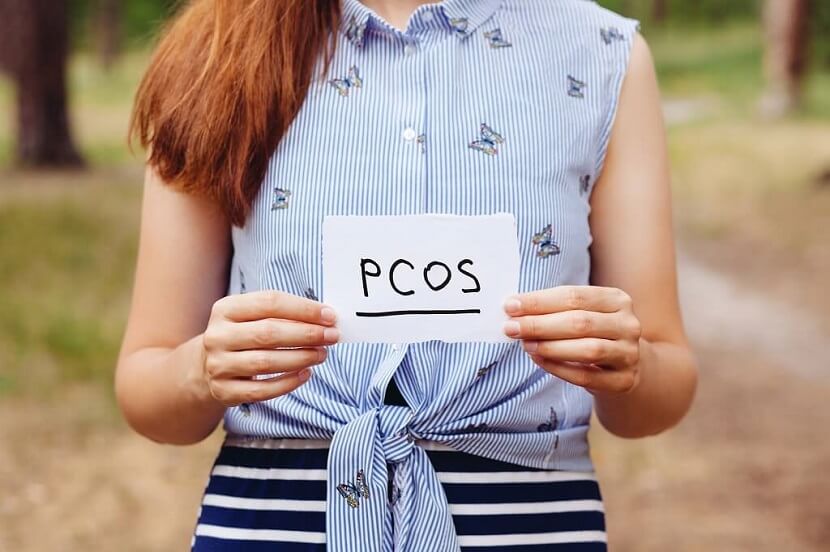If you’re reading this, you may have been diagnosed with PCOS aka Polycystic Ovarian Syndrome. Firstly, I’d recommend reading our articles on What is PCOS and New Guidelines for PCOS Diagnosis and Treatment. These articles will give you great insight into what PCOS is, the signs and symptoms, and how it’s diagnosed. Moving forward, if you’re in the midst of understanding PCOS, it’s essential to recognize that PCOS is a multifaceted syndrome.
There is no ONE reason for PCOS; however, there are some major links that need to be discussed in further detail for you to optimise your healing journey.
Sympathetic Nervous System Dysregulation (aka stress, trauma or anxiety)
Ladies, if you’re eating right and taking every supplement but your stress is through the roof, this will indeed hinder your healing process and ovarian function. Your mental health must be made a priority. Among women with PCOS, there is growing evidence pointing to dysregulation of the opioid system, both centrally and peripherally. This means our adrenal glands secrete cortisol in excess with stress.
Your reproductive communication will be secondary to your stress response.
Your adrenal glands are major contributors to the pathogenesis of PCOS and will influence your blood sugars, dopamine and serotonin response. Adrenal androgen excess, which is 97-99% of adrenocortical origin, is defined by high circulating levels of the metabolite DHEA sulfate (DHEAs). It is present in 20-30% of women with PCOS.
High cortisol levels will change your brain's communication with your ovaries and adrenal glands. They will also increase inflammation, blood sugar, and testosterone levels, and potentially hinder regenerative sleep. Additionally, ovarian testosterone may contribute to adrenal hyperandrogenism (increase of adrenal testosterone production) by increasing the sulfation of DHEA to DHEAS. Check your cortisol, DHEA, DHEAs, adiol, and melatonin levels comprehensively in a DUTCH test. It’s worth the investment.
How to identify Sympathetic Nervous System Dysregulation

An evening journal for 5 -10 minutes is ideal for introspection. You can ask yourself questions like:
- How do I feel today?
- How long have I been stressed or depleted?
- Am I fighting for my soul to be heard?
- When did I start feeling this way?
- What can I do to support my mental well-being?
- Is there a connection with my environment that has changed?
- Do I feel supported?
- What makes me feel my happiest/lowest?
- How did I feel today around [particular person]?
- What are my top 3 things to be grateful for today?
- Is there a lifestyle strategy I can implement to support my triggers?
The idea is to identify and almost look at your mental health from the outside without judgment – only with a kind heart to yourself and just to help understand what's underneath the surface.
Chronic Low-grade Inflammation
As we’ve discussed, a heightened nervous system (stress response), increased androgens, poor sleep quality and metabolic issues all contribute to chronic inflammation. This will influence your health in a myriad of ways, particularly further dysregulating the PCOS signs and symptoms cycle.
Glucose is a destructive molecule and your body doesn’t want it circulating around the bloodstream – it wants glucose in a cell pronto! When you have insulin resistance, you’re predisposed to chronic inflammation. Research has shown women with PCOS have higher levels of inflammatory markers such as C-reactive protein (hs-CRP). Inflammation can also wreak havoc on your neuronal health and can be a predominant presence in depression pathogenesis. Check this marker in your pathology and make sure to support inflammation.
Blood Sugar Imbalances
Whether you’re a lean or overweight PCOS gal, insulin and glucose have a role in the syndrome development. Lean women, regardless of whether it shows up on a blood test, can still have a cellular response to insulin within the ovary that increases testosterone and androgens. One study indicated 47% of women with PCOS had insulin resistance. There are also a few things to consider with metabolic issues:
- How is my overall digestion?
- Do I have constant gas and bloating?
- Do I have loose bowels or suffer from constipation?
- Have I had my gallbladder removed?
- Do I take long term antacids?
- Could I have dysbiosis?
- Do I have undigested food in my stool?
The increased presence of insulin can lead to premature luteinisation, maturational arrest of the follicle, and excess androgen production. Mood also plays a role, as endorphins aid in the regulation of pancreatic islet function, hepatic insulin clearance, as well as glucose metabolism.
It’s also been shown that lean women with PCOS may have adequate fasting insulin, but are likely to have hyperinsulinemia after eating.
Pathology may not always indicate blood sugar dysregulation as they focus on RANGES and not RATIOS of insulin to glucose. Everything works in synchronicity – we must evaluate how the communication between these molecules function. You can calculate these ratios yourself simply by using a HOMA-IR calculator and results from a fasting glucose/insulin test.

LH:FSH Ratio Dysfunction
- FSH - Follicle stimulating hormone, dominantly found in the follicular phase (first 2 weeks of your cycle)
- LH - Luteinizing hormone, predominantly in luteal phase (last 2 weeks of cycle) but significantly increased in the follicular phase with PCOS
Both FSH and LH increase during ovulation to release a dominant follicle containing your egg from the ovaries. Now this is where it can get confusing, so bear with me – it’s important to know, as approximately 40%+ of women with PCOS have elevated LH.
LH is classically recognized for its role in the luteal phase (second half of your cycle) for promoting progesterone secretion and holding the uterine lining for a healthy pregnancy. However, LH plays a critical role in the follicular phase (first phase) of your cycle. It is responsible for inducing ovarian androgen synthesis and initiating oocyte maturation mid-cycle.

In regards to PCOS, the excess production of androgens (male hormones) as a consequence of disordered follicular development and release leaves the body unsure of what happened to the follicle. ‘Where did my little egg go?’ – the hypothalamus and pituitary gland think! Often, the egg/s released stay on the ovary and the pituitary gland ramps up the production of LH.
In a healthy follicle release, the corpus luteum will send out signals to support progesterone and the second phase. In PCOS, the corpus luteum absence increases LH and FSH, however, predominantly LH by up to threefold! Next thing you know, you’ve got a follicle on the ovary filling with fluid and creating your cysts.
Now here’s where the androgens (male hormones) come in. Androgens and oestrogens inhibit LH. So the more LH you have, the more androgens you have. LH and androgens have a synergistic relationship – they both balance each other. So if one is higher, the other will try to increase as well. Not only that, but increased insulin can increase LH and further stimulate androgen production. No wonder we are dealing with facial hair and acne!
Another key factor here is progesterone. Progesterone and LH also have a synchronistic dance each month. However, women with PCOS are prone to low progesterone and again, are unable to healthily reduce the GnRH/LH communication. Impaired progesterone feedback is also intertwined with insulin resistance.

Moral of the story, check your LH:FSH levels around the 3rd day of your cycle. Alternatively, investigate comprehensively with a DUTCH test to obtain a deeper picture.
What now?
You’re probably wondering what to do about this increased luteinizing hormone (LH) situation. Well, research suggests that it’s actually not ALL about the androgens increasing LH, but actually quite a lot to do with lowered progesterone, too. How do you break the cycle? Work on naturally increasing progesterone, modulating insulin resistance and reducing androgens and inflammation. Check out our other article on Managing PCOS Naturally.
If you are looking for products to support you on your menstrual journey try our Healthy Cycle Bundle .

For professional support, book in to see one of our Happy Healthy You PCOS specialists.
We’ve also formulated a much more simplistic PCOS Report ready for you to download. This program is based on scientifically-backed interventions to nourish the ovaries and support PCOS in all its complexities. The report features key PCOS strategies focusing on diet, lifestyle and supplements.









Leave a comment
This site is protected by hCaptcha and the hCaptcha Privacy Policy and Terms of Service apply.